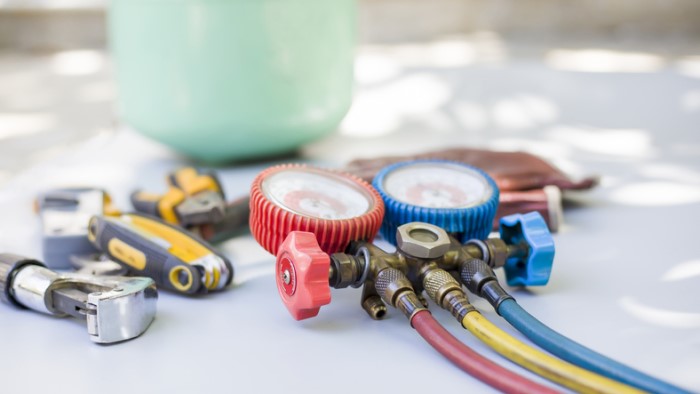A Checklist For Commercial HVAC Preventive Maintenance
As a commercial business owner or director, your facility likely accounts for a large portion of your yearly budget. In addition to rent or mortgage payments, building upkeep is considerably costly—especially when repairs are needed. Preventative maintenance is an essential part of facility management, and the HVAC system is one of the most important elements to focus on.
The efficiency of your building’s HVAC system is directly related to the amount of money you spend on energy costs. If your HVAC system is operating inefficiently, you are wasting precious resources that could be better spent growing your business or generating income. To avoid spending too much on facility upkeep, it’s important to implement preventive maintenance strategies that will keep your HVAC system running efficiently.
The Importance of Preventive HVAC Maintenance
HVAC systems are one of the biggest energy consumers in your facilities. These systems are essential for any functioning facility, and while there is no way to completely reduce the energy they spend there are ways to make them more efficient. By applying preventive maintenance plans, you can ensure your HVAC systems aren’t using more energy than they should. In doing so, you will not only reduce your monthly energy expense, but you’ll also be less likely to run into costly repairs—leaving you with more money to invest into your business.
A Commercial HVAC Preventive Maintenance Checklist
There are several steps you can take to prevent your HVAC system from needing costly repairs. Plus, these steps will keep your HVAC system running more efficiently on a monthly basis. Follow this preventive maintenance checklist and you’ll be sure to save money on your building expenses.
Inspect and Change Your Air Filters
Failure to replace air filters regularly is the number one reason for emergency servicing. You should inspect your air filters each month to ensure they have not become overwhelmed with dirt and debris. Even if they don’t appear to be excessively dirty, you should replace your air filters every few months. Expired air filters restrict airflow through your HVAC system, weakening its performance and increasing its energy consumption. By changing your filters frequently, the air in your facility will remain free from dust and other allergens.
Lubricate or Replace Belts
When the belts inside your HVAC system start to wear down, they can experience unnecessary slipping or friction within the equipment. Lubricating your belts prevents unwanted friction and keeps them moving smoothly for less wear and tear. Eventually, you will need to replace them, but keeping them lubricated extends their lifespan and saves you money on frequent belt replacements.
Clean Your Evaporator and Condenser Coils
Evaporator and condenser coils keep your facility cool by absorbing and redistributing heat. Over time, dirt and other debris can accumulate on these coils, which impedes the cooling process. If left unchecked for long enough, coils can even experience ice buildup that can severely damage your system. Clean your evaporator and condenser coils regularly to prevent these issues and keep your cooling system running as it should.
Program Your Thermostats
At the beginning of both the heating and cooling seasons, and during the months your system is not used regularly, you’ll want to program your thermostats to reflect the change in temperature. When switching from heating to cooling, programming your thermostats ensures the settings are optimal for energy savings. This can be done via your building’s automated system, or by accessing your HVAC’s manual settings.
This is also a good time to check the operation of your thermostats. If they are not operating properly, they may be causing your HVAC system to run more frequently than necessary; increasing your energy consumption and costing you money. If you notice they are not working correctly, make plans to have them repaired or replaced.
Check Drip Pan and Drain Lines
Your HVAC system may experience clogs in its drainage lines. These clogs can cause moisture to build up inside your building, potentially leading to the growth of mold or mildew, and making the facility more susceptible to other damages. Regularly check your system to make sure your drip pan and drain lines are emptying properly, and remove any obstructions that may have developed.
Inspect Ducts for Mold or Debris
Unwanted particles can enter your HVAC system via intake ducts, contaminating the air in your facility. If left unchecked, they can lead to infection and the aggravation of allergies. Some of these particles include:
- Debris
- Dust
- Pest droppings
- Mold
Inspect your ducts monthly to ensure none of these particles have built up. If they have, contact a trusted HVAC service provider to conduct a cleaning of your ducts.
Inspect Heating Elements
Before the cooler season arrives, it’s important to inspect the heating elements of your HVAC system to avoid potential dangers. Check for cracked or corroded heat exchangers that can dispense carbon monoxide. Ensuring heating elements vent properly keeps the air in your facility pure and safe.
Check Electrical Connections
To ensure optimal HVAC performance, run through your system’s electrical connections and check that they are properly secured. Strong electrical connections prevent your system from straining to gather the energy it needs and ultimately improve its efficiency.
With commercial preventive HVAC maintenance, you can ensure you aren’t overpaying for annual facility expenses. By implementing these strategies, your HVAC system will run more efficiently all year round, and you can enjoy considerable savings. To cut costs even more, consider working with a commercial HVAC specialist who can design a more customized list of preventive maintenance strategies.
Industrial Mechanical Contractors, Inc. is dedicated to providing facility directors with cost-effective and energy-efficient HVAC strategies. Their experts can optimize your HVAC system and ensure it is running smoothly at all times. Contact IMC today and start designing the best maintenance plan to fit your needs.






